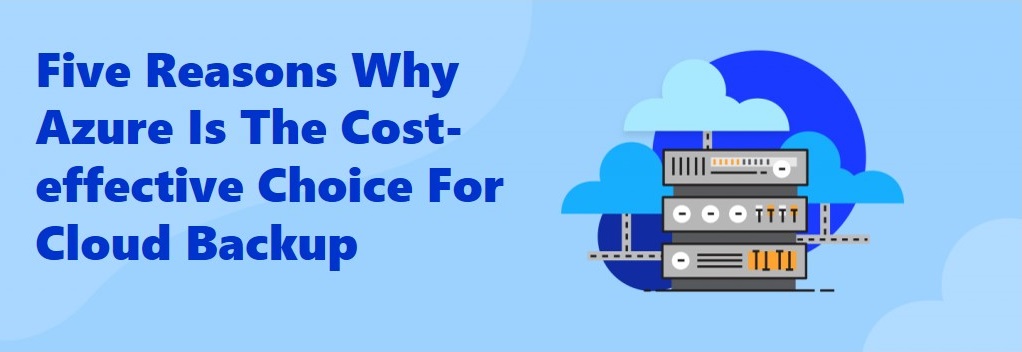Region
India
While the options for cloud backups are varied, the importance however is gaining traction increasingly. With Microsoft’s Azure, the reliability factor has played a key role in making this as the most preferred Cloud Service. Now, the SMB customers have a variety of choices to move to cloud completely or make use of the Hybrid Capabilities.
With Azure’s BaaS (Backup as a Service), your business has powerful tools at your disposal to backup all your important data and customize based on the varying requirements. With Azure Backup you can protect all your data right from Exchange, SharePoint, local files and folders and SQL Servers. The backup creates a copy in a secure remote server, to which you have 24×7 access, so that you can restore the data anytime you see fit.
1. Cost Effective
The flexible pricing strategy is one of the USPs why businesses from SMBs and Enterprises look to Azure as the prudent choice of Backup. Flexibility and Scalability comes close to the cost effectiveness, let’s take a look at them in the coming points.
Pay as you go model makes it a convenience to scale as per the requirement. Also, making it a far cost-effective choice compared to the flat rate models, as you pay for your consumption only.
2. Scalability
Adding on to the pricing strategy above, the scalability option makes it easier for the business to test out new applications and services irrespective of the size of consumption. Businesses can opt to scale up or down based on the requirement, instead of being tied down to a strict restriction onto the consumption.
3. Data Security
Azure understands the importance of its customer’s data, that is why – Azure Backup has a number of security measures built into it. Automatic recovery stores the recovery points for the last 14 days, to make sure your precious data are available in a non-corrupted state.
4. Unrestricted Data Transfer
Microsoft does not restrict the data transferred to and from the cloud servers, irrespective of the sizes. You must ensure the online availability of all your resources to make use of the limitless transfer of data. Else, you can opt for Azure’s Offline Import – Export Service, which comes with extra pricing.
5. Flexible Restorations
Most of the above combine to provide increased flexibility in data restoration. Unrestricted Data Transfer means you do not have to be bothered about the charges for data imports. Also, the data encryption makes sure the limitless data transfers doesn’t increase the vulnerability in any way.
6. Focusing on reliability
Azure helps in keeping your operations reliable with an integrated and comprehensive data backup solution. The benefits of cloud backup, as we discussed – ranges from flexibility to scalability. And, because of the pricing options Azure Backup could be the right and cost-effective choice for you!
If you have further queries on Cloud Backup, get in touch or keep following our series of blogs.




